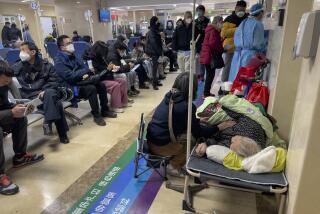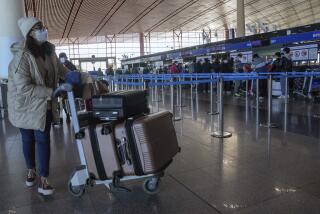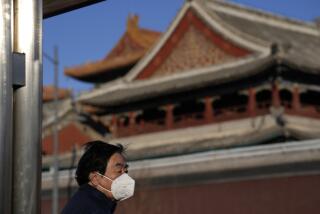Chinese villages walled off against outsiders as coronavirus toll mounts
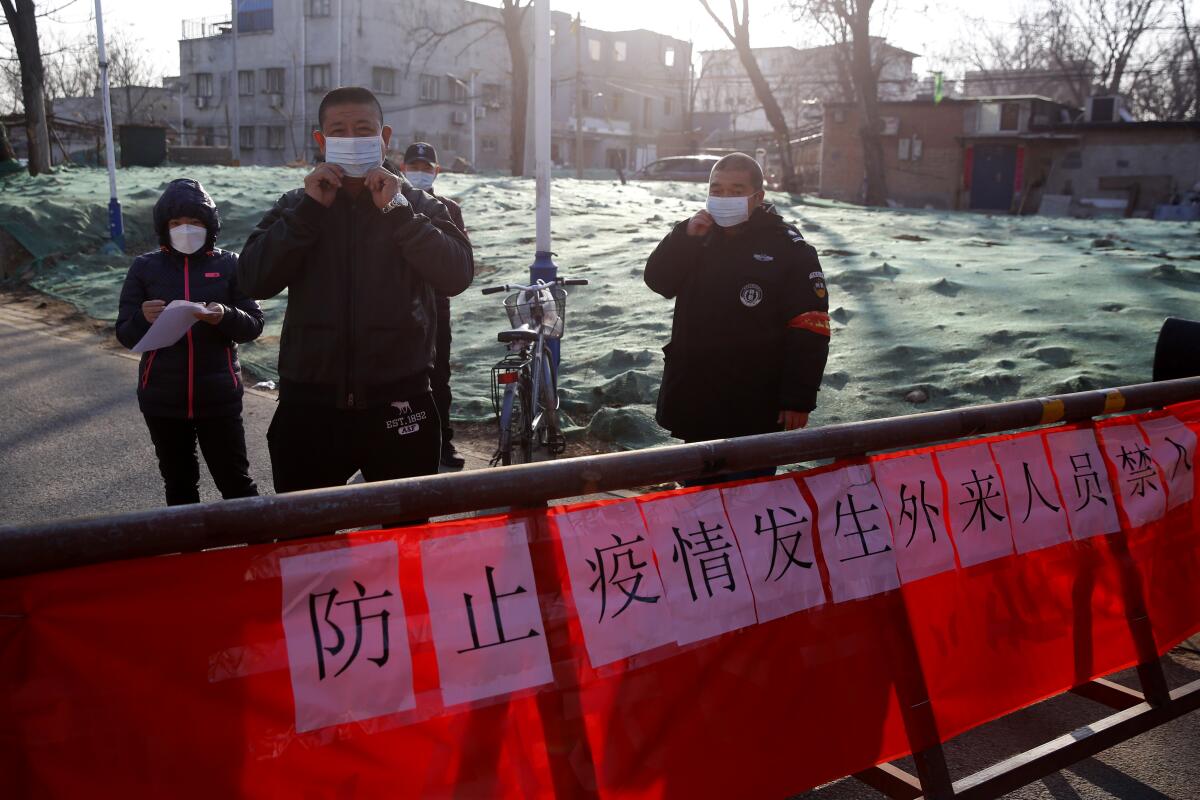
XU ZHUANG CUN, China â A red ribbon and a fretful man blocked the road to this village.
âDonât get any closer!â he yelled. âYou have to leave!â
Here, 20 miles southeast of central Beijing, fear of a novel coronavirus, which has killed 304 people in China, hangs in the brisk winter air. Strangers bring death. They must be kept at shouting distance. Go away.
Never mind that most of the fatalities have occurred in faraway Hubei province. Never mind that few people have reason to visit the sleepy village. Vigilance has become the watchword of the nation, and the world.
Since the coronavirus outbreak intensified two weeks ago, Xu Zhuang Cun is one of many villages across China that have posted 24-hour guards and erected makeshift barriers against outsiders. The scenes are reminiscent of centuries past when disease and epidemics swept the land.
Some villagers have taken extreme measures. Videos on social media show a man wielding a giant spear, one on horseback in a knightâs costume and others swatting away visitors with brooms and sticks.
On a larger scale, cities and countries are walling themselves off, too, with thermometers pressed to travelersâ wrists, quarantines and urgent bulletins to avoid China. The virus is spreading quickly, breaching continents in a hyper-connected world. More than 14,000 have been stricken with the new flu-like illness, mostly here but also in more than a dozen other countries, including eight cases in the U.S.
People eye each other suspiciously, judging accents, facial features, sniffles and coughs. Is she from Wuhan? You? Could you be a carrier?
Deaths in the early days were mostly limited to the elderly. There could be many people with mild symptoms who never know they had the virus but pass it to others. Its lethality â whether it is deadlier than the flu, which kills tens of thousands of Americans each year â is not yet clear.
Still, no one wants the virus, which is believed to have started at a live animal market in the central Chinese city of Wuhan, in their backyard. No one wants to be responsible for letting it in. Travel restrictions and flight cancellations are mounting. Surgical masks are prized. The air is eerie and tense. Financial markets are rattled and the crisis is threatening the credibility of President Xi Jinpingâs government.
After the World Health Organization declared the outbreak a global health emergency on Thursday, the U.S. State Department urged Americans not to travel to China and those already in the country to consider leaving. Delta Airlines and United Airlines are halting all China flights.
U.S. Embassy employees throughout China will be evacuating, after those in the virusâ epicenter of Wuhan departed on a charter flight earlier this week.
More flights are being arranged for Americans trapped in Wuhan, which has been on lockdown, after some scored seats on the diplomatic charter flight and many others were left behind, the State Department said Thursday.
The United Kingdom advised against all but essential travel to China and warned that leaving the country could become more difficult in the coming days.
Israelâs foreign ministry has warned against traveling to China and urged Israelis already there to leave. Russia announced its first two coronavirus cases on Friday and has closed its 2,600-mile border with China.
The outbreak erupted at the worst possible time: just before the Lunar New Year, when millions of Chinese travel to their hometowns or abroad in the worldâs biggest annual mass migration.
Some cities and provinces, including Shanghai and Guangdong, have extended their new year holidays to Feb. 9 to buy more time before residents return, potentially bringing the virus with them.
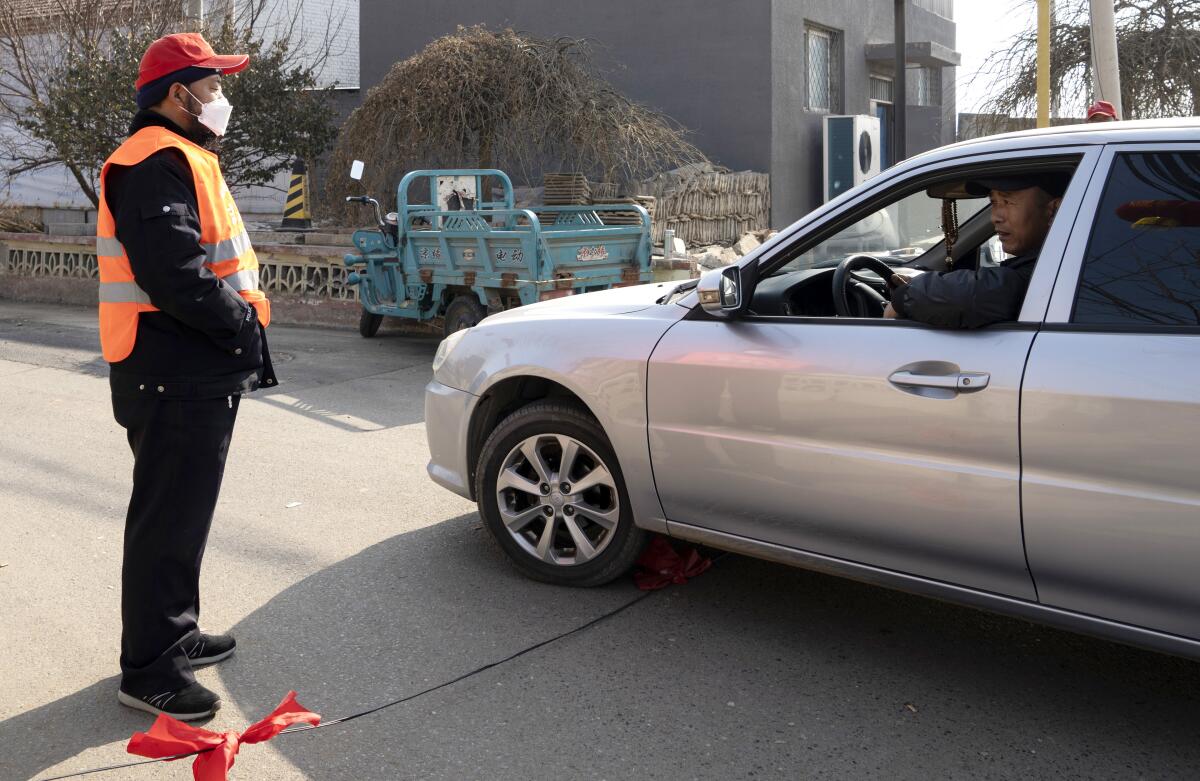
Beijing, however, has kept Monday as its back-to-work day . Health officials announced that the virus has spread in the city beyond a few travelers from Wuhan, with the coming days marking a critical period.
Between workers who have yet to return and people staying home to avoid the virus, subways in the capital are nearly empty. Almost everyone wears a surgical mask in public, though some still indulge in the Chinese habit of spitting on the sidewalk.
Residents who have traveled outside the city are being asked to register with their neighborhood councils. Some apartment complexes are screening the temperatures of everyone who enters.
Beijing officials are renovating a hospital formerly used for patients during the 2003 SARS outbreak, preparing for hundreds of patients, state media reported.
The economic effect is already being felt across China, with migrant workers stuck in their home villages, major tourist attractions closed and restaurants half-empty.
Amid paranoia about contracting the virus, people from Hubei province and its capital city of Wuhan report feeling discriminated against or shunned. Some Asian Americans in the U.S., too, have said they are viewed as harboring the virus.
Despite worsening conditions in the quarantined city of Wuhan, the Chinese government announced that people from Hubei province would be flown back home, because of âreal difficulties that Hubei and especially Wuhan citizens are facing overseas.â
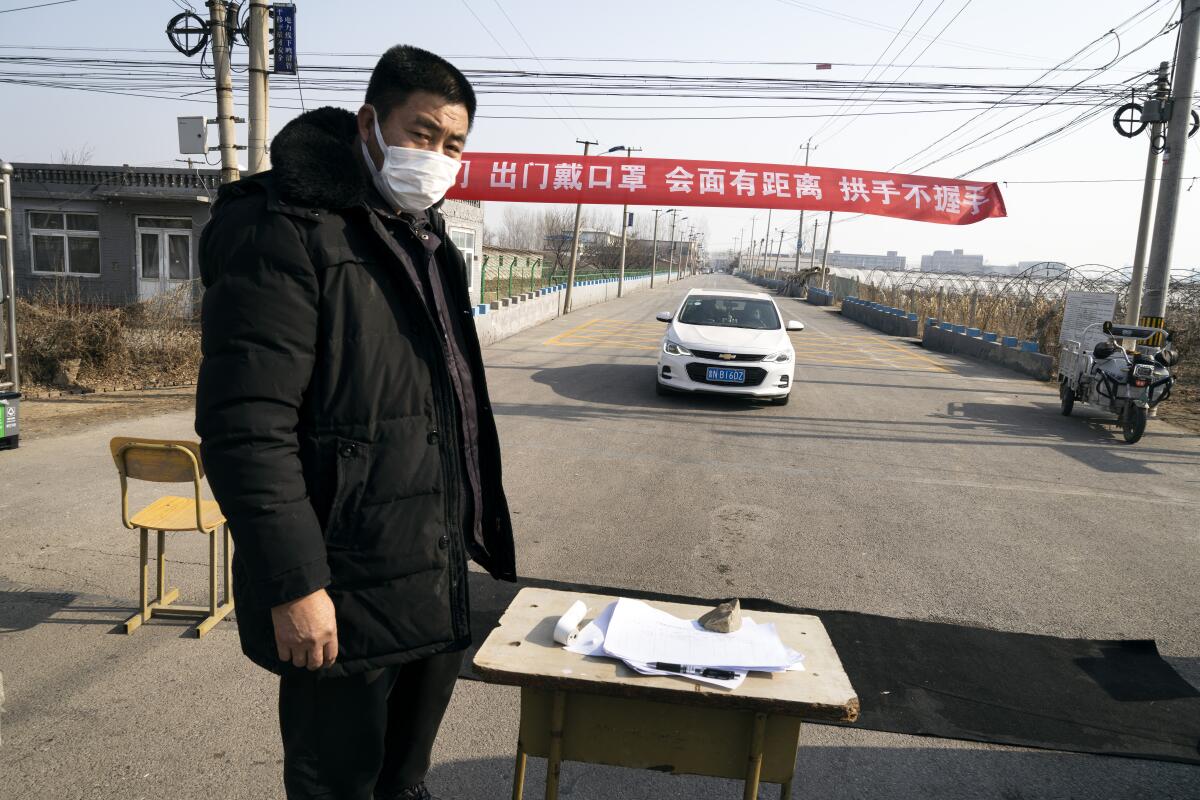
In the Chinese countryside, villagers are keeping outsiders at bay by stringing wires or ribbons across roads, blocking entrances with cars â and sometimes by creatively arming themselves.
In a video posted on Twitter, a man in an orange jacket and blue surgical mask sits on a platform at the entrance to his village, clutching an enormous gold spear.
At his feet is a handwritten sign reading: âOutsiders prohibited from entering.â
âDonât come to see your family. No outsiders allowed,â the man warns. âThis village is heavily guarded.â
In another video, a man on horseback dressed in knightâs regalia, including a helmet, face shield and spear, says to a driver seeking to enter a village:
âWhy are you here? Go home. This is an extreme situation. You have to be safe.â
Back on the outskirts of Beijing on Friday, a sentry at an entrance to Yu Di Cun said outsiders were not allowed into that section of the village, home to 12 households.
The villagers, who grow cabbage, eggplant and other vegetables, have still been able to sell their produce to a local wholesaler, the man said, despite many stores and restaurants being closed in Beijing.
Village leaders have told locals who work in the city not to come back and visit, said the man, surnamed Yu, who would not give his first name.
He said the 24-hour security at the village entrance is a precaution. He does not believe the outbreak will get much worse.
âThe country has the ability to prevent it,â he said.
At Tian Jia Ying Cun, villagers used pulleys to raise a red wire and let in authorized vehicles.
One of the men, who would not give his name, said more than 2,000 people lived there, farming cabbage, radishes and other vegetables, which they have still been able to sell locally.
âItâs because of the virus â weâre afraid of transmission,â he said of the makeshift barrier.
Nearby, Zhang Weiguang hawked strawberries at a roadside stand. He lives in Hebei province, a three-hour drive away, and rents a greenhouse in the village to be closer to wholesalers in Beijing.
The wholesalers have not been buying lately, so he set up the stand, with a handwritten cardboard sign and the fruit arrayed in green plastic bowls.
The road is quiet and customers are few. If the markets in Beijing stay closed, he will lose his main source of income.
Zhang, 41, is optimistic.
âI believe in my country,â he said. âThis wonât last very long.â
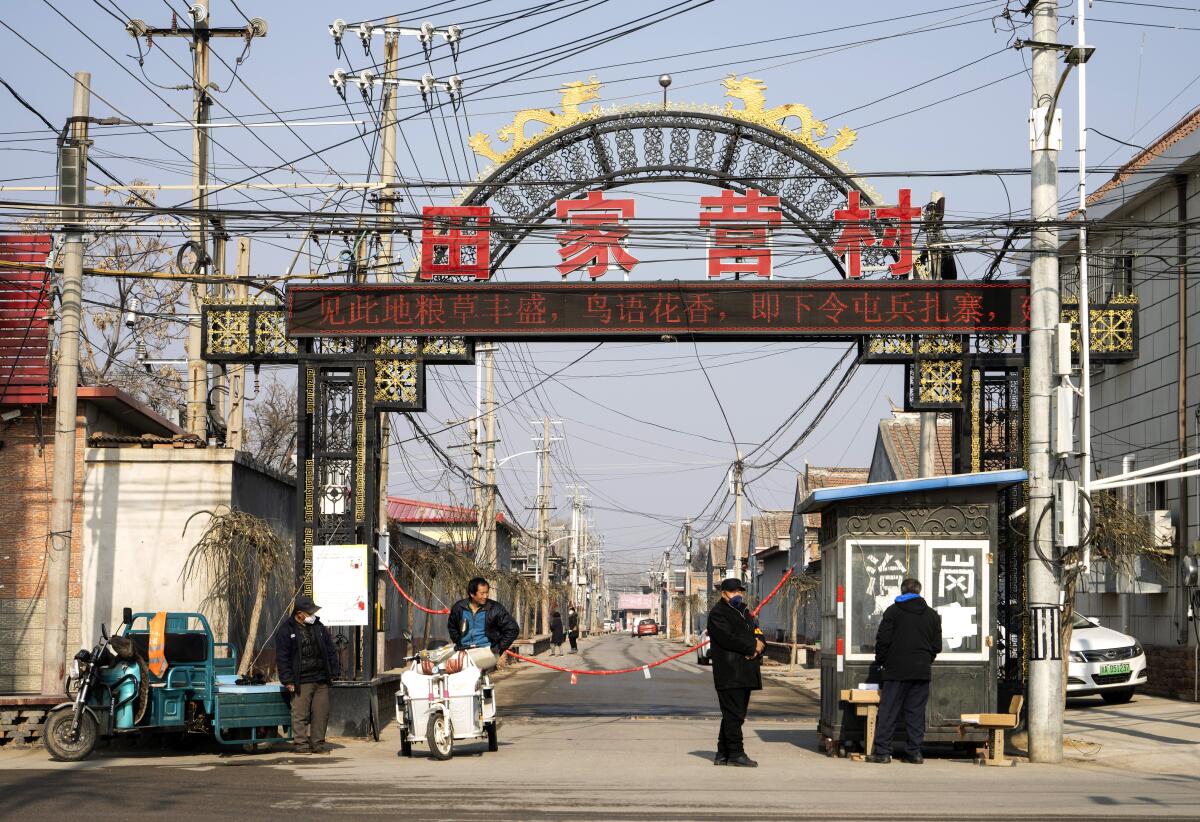
Staff writers Tracy Wilkinson in Washington and Max Lu in Los Angeles and special correspondents Sabra Ayres in Kyiv and Noga Tarnopolsky in Jerusalem contributed to this report. The Associated Press also contributed.
More to Read
Sign up for Essential California
The most important California stories and recommendations in your inbox every morning.
You may occasionally receive promotional content from the Los Angeles Times.
